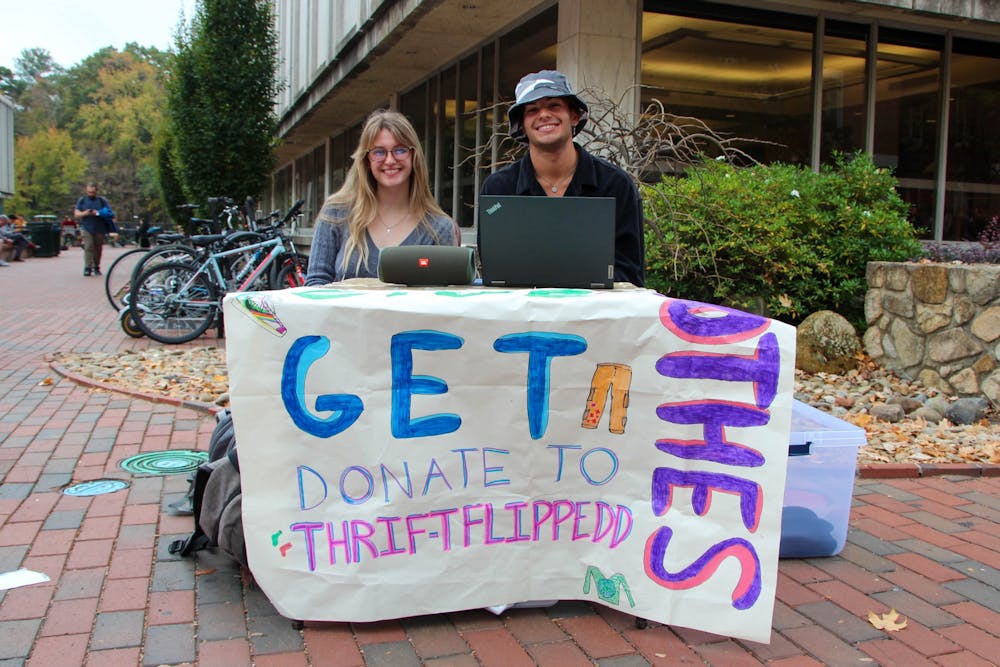Ellie Maltzahn, a junior at UNC, has worked in the resale and consignment industry for nearly five years — but last year, she realized that she could take her passion for reselling clothing beyond the workplace.
At her job, Maltzahn found herself drawn to items that her company turned away. She realized she needed another outlet where she could sell items that she thought were valuable.
“I started just collecting things because I love thrifting and I love the Goodwill bins — I think it's just really fun,” Maltzahn said.
On her Depop store, smelliethrifts, she resells both items from her own closet and clothing that she’s thrifted specifically to resell.
For her, Depop is not a full-time job, but a hobby she picks up during the summer or throughout the school year when time allows. Maltzahn said she always tries to make a small profit — typically between $10 and $20 — but ultimately prices pieces depending on what condition they’re in.
Junior Cynthia Tran also has experience reselling pre-loved and thrifted clothing. In 2022, she founded Tarheel Thrifts, a philanthropy-based clothing thrift store whose profits are donated to charities.
“It grew into an organization where I would collect donations from the campus community or even people in the Raleigh-Durham Triangle area,” Tran said. “They would donate their clothes and I would sell them and then donate [all of the profit] into charity.”
Tran said she is currently on a hiatus, but during her active period, she earned and donated over $1,200 to organizations including the Carolina Abortion Fund, Save the Children Afghanistan and United Way Ukraine.
Like Maltzahn, Tran said that her pricing depended on the condition and trendiness of the pieces she had to sell. For her, keeping the pricing fair and affordable was important.



